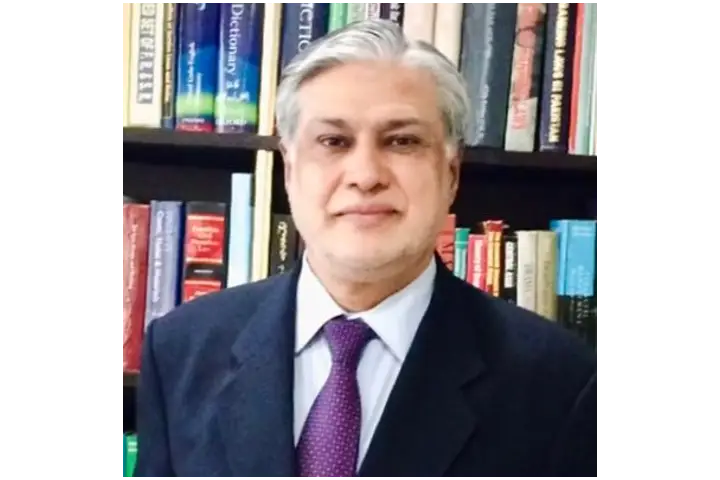

Pakistan's Finance Minister Ishaq Dar: Not in a happy spot
Is Pakistan going the Sri Lanka way? Pakistan is staring at bankruptcy even as it managed to repay about $1 billion to two foreign commercial banks on Saturday. In the next three months, Islamabad will have to repay more than $8 billion. But Pakistan’s foreign exchange reserves have fallen to an all-time low of $4.5 billion that are not adequate to pay for imports of essential goods even for a month.
Much like Sri Lanka, gross mismanagement of finances and misplaced priorities over the years have only worsened its economic situation. Pakistan’s Finance Minister Ishaq Dar, who took charge in September last year has come under the spotlight. After strongly criticising the International Monetary Fund (IMF) for attacking stringent riders for its loan programme, a desperate Dar has now said that he is ready to accept them.
“The refusal to accept the real economic situation and the overconfidence of the finance minister has led to more problems,” an analyst with a ratings agency who refused to be identified told India Narrative.
The IMF revived the $6 billion loan package under Extended Fund Facility late last year but already ran into uncertainty after Dar reversed the policies reducing fuel prices. The IMF had asked Pakistan to eliminate fuel subsidies and increase the tax net by imposition of new taxes. The scarce forex reserves have severely dented the country’s economic activities which have also led to loss of livelihood. Critical sectors including manufacturing and exports have suffered a blow.
According to reports, Dar, who is in Geneva, will meet IMF officials on the sidelines of a conference in Geneva as Pakistan desperately hopes to restart the bailout package. Pakistan is also hoping to get $3 billion from Saudi Arabia in the next few days. Pakistan’s Army Chief General Syed Asim Munir is also in Saudi Arabia to hold talks with top officials of the kingdom. The analyst said that even if Pakistan manages to receive financial assistance from other “friendly” countries, the amount will be directed to repay debts.
“The country needs money for its domestic economy as well, you need money for social and development sectors, otherwise the degeneration will continue and impact human index, which in turn will be detrimental for the country. It will not be immediate but the problem is that the political class will tend to overlook the needs of the society,” the analyst said.
Food prices have soared. Besides many essentials including ghee, cooking oil, among other things could be in short supply. The situation has rattled its citizens.
A Pakistani citizen living outside told India Narrative many people who live in the country are now desperately looking to relocate. A study by Pakistan Institute of Development Economics (PIDE) conducted last year revealed that more than 40 per cent of the Pakistanis were willing to leave the country and the number is highest among the youth. In 2021, Pakistan’s Bureau of Emigration Overseas Employment (BEOE) data showed that as many as 2,86,648workers registered for overseas employment — a 27.6 per cent rise over the previous year.
Representative Thinlay Chukki from the Tibet Bureau in Geneva spearheaded a delegation's trip to Frankfurt…
Prime Minister Narendra Modi will visit Sikkim, West Bengal, Bihar, and Uttar Pradesh on May…
US President Donald Trump claimed that he had offered Canada a choice between becoming the…
Union Commerce and Industry Minister Piyush Goyal has urged exporters to create a facility that…
Foreign Secretary Vikram Misri met Under Secretary Jeffrey Kessler on Wednesday and discussed advancing India-US…
An exhibition, titled 'Rihla-e-dosti' celebrating "over 250 years of friendship" between the regions of India…